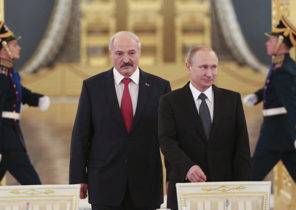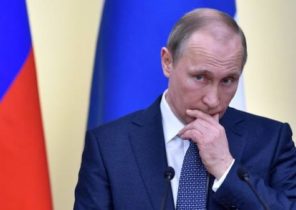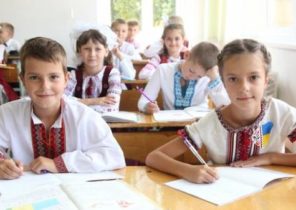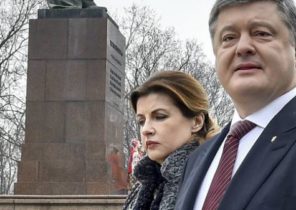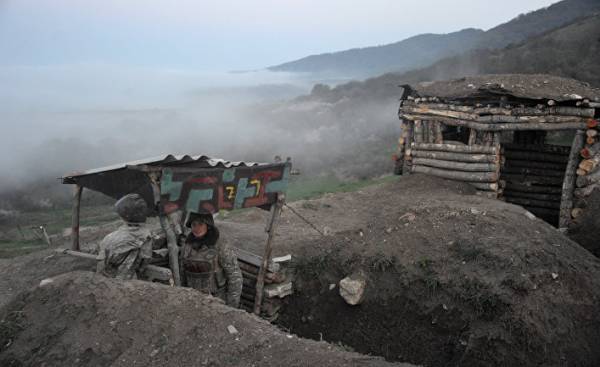
“168.am:” Mr de Waal on the background of the diplomatic activity that followed the April war and the process of implementation of the reached at this time of the agreements, in General, the negotiations reached an impasse. From time to time, the situation on the contact line becomes tense, recently the Azerbaijani side made another attack. In this situation, what can be expected development on the frontline and in the negotiation process, given the positions of the parties?
Thomas de Waal: Many expect the growth of tension in the Karabakh conflict zone in the spring of this year, because after April 2016 collisions in the settlement process not been political progress, and there is no evidence that diplomacy has achieved any purpose. This fear comes from the fact that the two societies observed the aggressive sentiments that the leaders on both sides are trying to mitigate. In Azerbaijan, the disappointment is much deeper, as Nagorno-Karabakh over the past year there has been no political progress.
As for the Armenian side, there is still anger and resentment that are caused by violence applied last year. These sentiments — no disappointment Azerbaijani nor Armenian anger — are not special policy or strategy, but there is a danger that they can lead to the adoption of such a decision, which will incite even more widespread conflict. We face the risk to close the cycle of aggression that can lead to real conflict and loss of lives.
— In one of your recent articles You said that the conflict needs active diplomatic efforts to prevent further escalation and war in the conflict zone. How, in your opinion, should resume the process of negotiations when the agreements reached in Vienna and St. Petersburg remain on paper.
— These agreements that have been reached last summer should be the basis for a peaceful settlement. Now they form the basis of dialogue. In fact, at the presidential summit in Vienna, the parties agreed to go through compromises, something they previously refused. In other words, the Azerbaijani side has agreed on measures to strengthen the ceasefire regime, the Armenian side to a comprehensive peace agreement negotiations. Why is there no progress?
Not surprising that there is a big promotion, when diplomacy reaches only so little results. In the Karabakh conflict zone has formed a vacuum that will be filled by either negotiations or threats, or potential military action. Another problem that the USA and France as co-chairs of the OSCE Minsk group, recently quite passive, and the impression that Russia, in particular, the Minister of foreign Affairs of the Russian Federation Sergey Lavrov, is the only mediator.
Russia was not trusted, neither Armenian nor the Azerbaijani side. All, including Russia, must see Paris and Washington in a more active role, the diplomatic activity should be supported by all three parties-the co-chairs.
— After meeting with Armenian President Serzh Sargsyan and French President Francois Hollande has proposed to introduce on the line of contact a mechanism that will allow us to monitor the situation and prevent new risks. He did not rule out the possibility of sanctions if one of the parties will take steps against peace. How do You assess the effectiveness of the proposal and the realistic implementation of such a mechanism, given the fact that now even the agreement on the monitoring mechanisms cannot be implemented on the frontline?
— The question of mechanisms for monitoring the ceasefire were discussed for many years. Former Russian President Dmitry Medvedev believed that such a mechanism will be implemented, after agreement of the presidents of Armenia and Azerbaijan made in 2010 in Astrakhan. In 2011, in the framework of the Vilnius summit sounded the official call to the parties that they brought snipers from the contact line. And last year, it was agreed that the monitoring mission Ambassador Kasperchik needs to expand. But nothing has changed, because in the end, relatively weak ceasefire is a leverage in the hands of the Azerbaijani side suffered a defeat in the 1990s, and which it can use against Armenians. It is not realistic to expect that Baku will abandon this leverage without getting anything in return, for example, the commitment of the Armenian side to start more substantive political negotiations.
— What is the role of Moscow? As You noted, in the conditions of lack of trust in Armenia and Azerbaijan, as Moscow will be able to impose their plans to the conflicting parties?
— In the Karabakh conflict zone, Russia is in a special situation. Being the most influential external force, the chief mediator and interested party, Russia sells weapons to the conflicting parties, preserving in this way the activity of the conflict. However, there are also different Russian interests. I would say that the security organs of Russia are interested in maintaining the status quo and balance between Armenia and Azerbaijan. Other circles, such as the business elite and foreign Minister of the Russian Federation Sergey Lavrov, to see the possibility of resolving the conflict, believing that a peaceful settlement can be reached, and this will expand Russia’s influence in the region, opening communication links. But I believe that the paradox of the Russian factor in the fact that Russia multiplies the probability of ignition of a conflict, selling arms to both sides, not being concerned in the fire of a new conflict. With the resumption of the war, Russia will be forced to abandon the balanced approach to the issue of supply of arms in favor of a strategic ally — Armenia, to the detriment of beneficial relations with Azerbaijan.
In short, a variety of Russian interests too many to ensure the settlement of the conflict. Other international players must be involved.
— Turkish President Recep Tayyip Erdogan at a joint press conference with Russian President Vladimir Putin said that there will be a triple Alliance between Turkey, Russia and Azerbaijan. He said he discussed the situation in the Karabakh conflict zone. How this new format might affect the negotiation process and the situation on the frontline? What does this mean for the Nagorno-Karabakh conflict?
— Turkey and Azerbaijan are willing to achieve much of Turkey’s role in Karabakh conflict. But it is not possible as long as Turkey is not a neutral player — Turkey has no diplomatic relations with Armenia significantly supported the Azerbaijani position. No new format can do to change that. The warming of relations between Moscow and Ankara could not smooth out the difference between the politicians of the Black sea and the Middle East. For Turkey and Russia, it is difficult to adopt a common position in the process of the Karabakh conflict.

